It is a method of growing plants in water without using soil. This type of farming has several advantages over traditional farming methods. Hydroponic farming is a type of agriculture where crops are grown without soil. Instead, crops are grown using nutrient-rich water solutions. Hydroponic farming can be done in any climate, but it is particularly well suited to tropical climates like Nigeria’s.
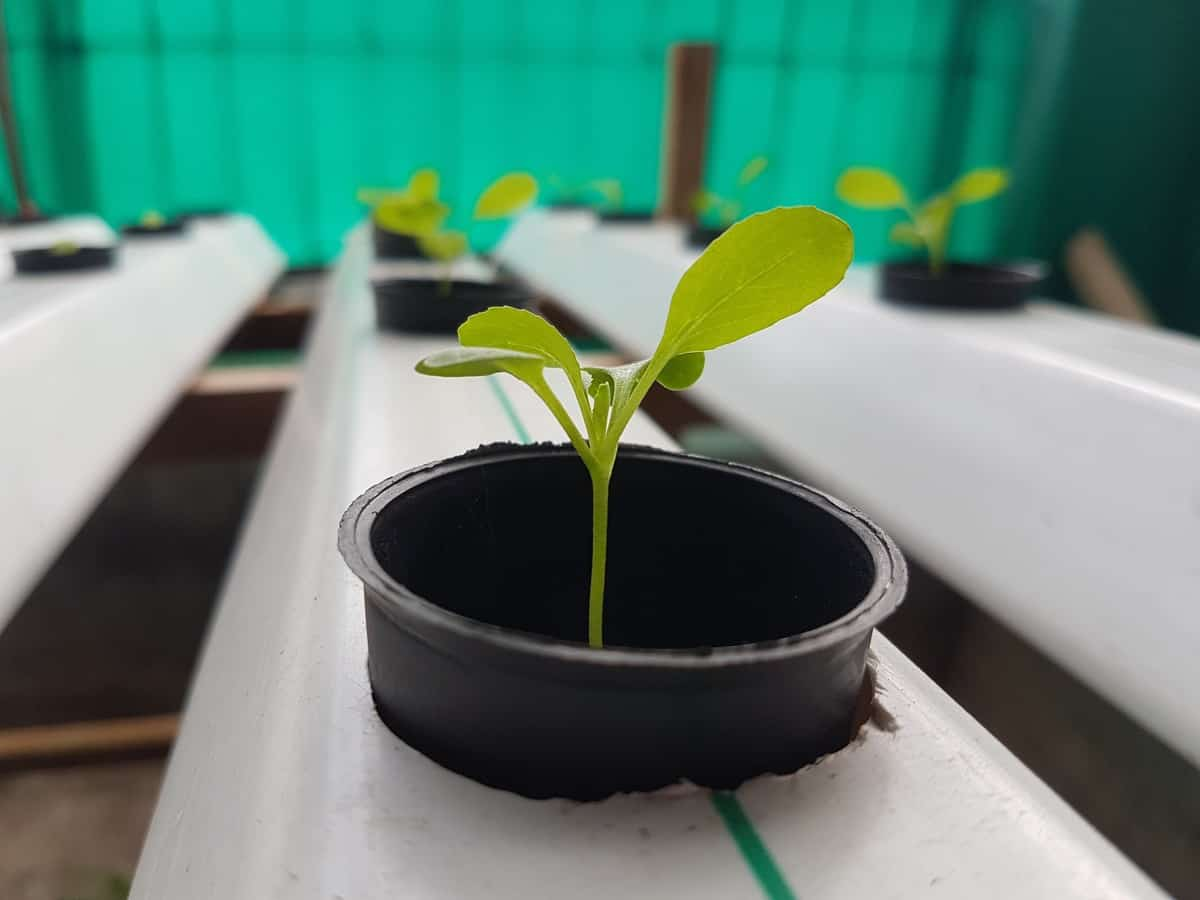
How to start hydroponic farming in Nigeria
What is hydroponic farming in Nigeria?
It is a type of agriculture where crops are grown in water. This farming method is often used in greenhouses or indoors, as it allows for year-round crop production and eliminates the need for pesticides and herbicides. In Nigeria, hydroponic farming is becoming increasingly popular to produce fresh fruits and vegetables efficiently and sustainably.
Advantages of hydroponic farming in Nigeria
- One advantage is that hydroponic farms can be built on any size of land, including small plots of land that would otherwise be unusable for traditional farming. Hydroponic farms can also be set up in urban areas, using vacant lots or rooftops.
- Another advantage of hydroponic farming is that it requires less water than traditional farming methods. This can be a major benefit in Nigeria, where water resources are limited. Hydroponics also allows farmers to control the nutrient levels in the water, which means that plants can be grown without using chemical fertilizers.
- Hydroponic farming also has a shorter growing season than traditional farms, meaning crops can be harvested more frequently. This can be a major benefit for small farmers who struggle to make a living from their harvest due to long wait times between planting and harvest.
- Overall, hydroponic farming offers many advantages for farmers in Nigeria. With less water requirements and shorter growing seasons, hydroponic farms can produce high yields with fewer inputs. This type of farming is also well-suited to small plots of land and urban areas, making it an ideal solution for many farmers in Nigeria.
In case you missed it: How to Start Hydroponic Farming in Brazil: Business Plan, Crops, Subsidy, and Requirements
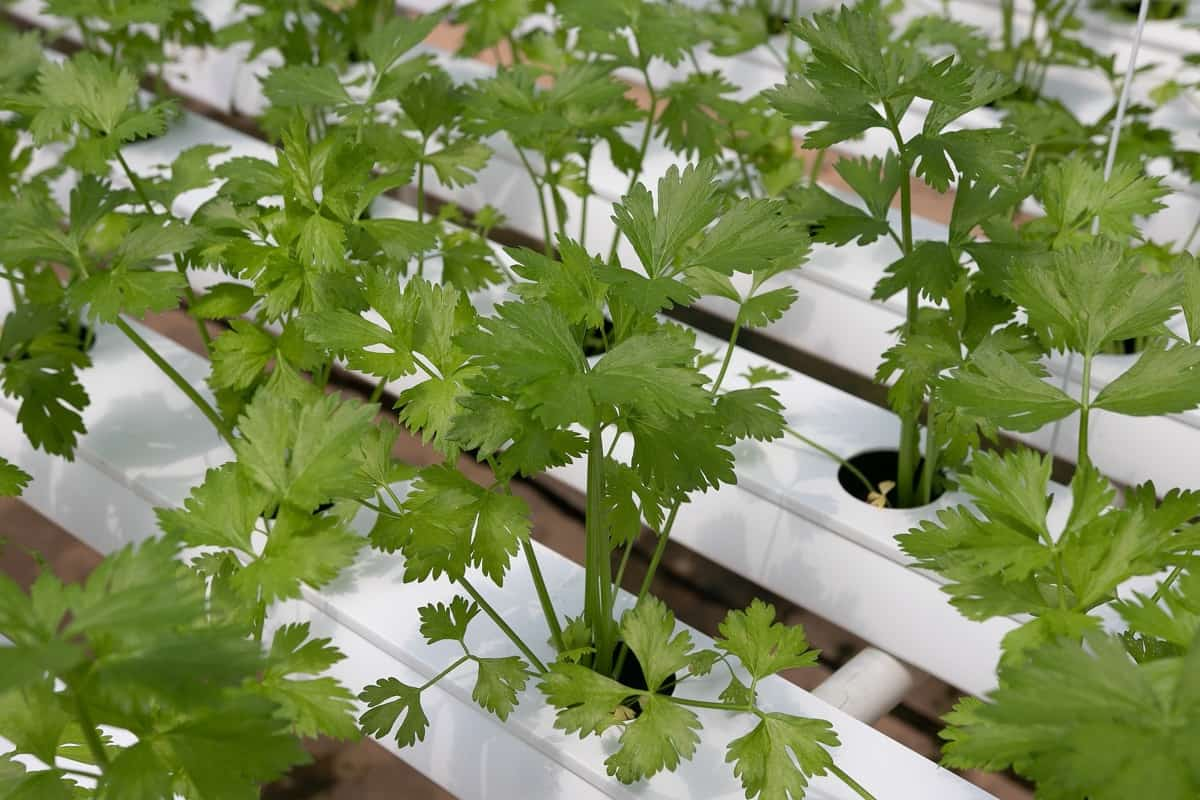
Are hydroponic farms profitable in Nigeria?
Yes, hydroponic farms can be profitable in Nigeria. When starting a hydroponic farm, there are many factors to consider, including the cost of equipment and supplies, the amount of land required, and the climate. With proper planning and execution, a hydroponic farm can be a profitable business venture.
How to start and set up your hydroponic farming in Nigeria?
First, you’ll need to find a suitable location for your farm. Hydroponic farms can be indoors or outdoors, so find a spot with plenty of sunlight and good drainage. Next, you’ll need to set up your growing beds. For hydroponics, you can use either plastic or metal grow beds. Ensure the beds are elevated off the ground so the roots can get oxygen.
Once your grow beds are set up, it’s time to add your plants. You can start with seeds or cuttings from existing plants. Be sure to space the plants evenly, so each one has room to grow. Finally, you’ll need to set up a watering system for your hydroponic farm. There are different ways to do this, but the common is using an automated drip system. This will ensure that your plants always have access to fresh water and nutrients.
Hydroponic farming at home in Nigeria
Firstly, you’ll need to choose the right location for your farm. A sunny spot in your yard is ideal, as plants need plenty of sunlight to grow properly. You’ll also need to ensure the area you choose is well-ventilated, as plants grown in an enclosed space can develop mold or mildew problems. Next, you’ll need to purchase basic supplies, such as grow lights, pots or containers, and a water pump.
You can find these items at your local gardening store or online. Once you have everything, it’s time to set up your farm. Fill each container with a growing medium like gravel or expanded clay pellets. Then, add water to the reservoir and plug in your water pump. The pump will circulate the nutrient-rich water through the system and onto the roots of your plants.
Steps to start a hydroponic farming business in Nigeria
- Select the right location: The main step is to select the right location for your farm. You need a space that gets sunlight and has good drainage.
- Build your grow beds: Once you have your location, you need to build your grow beds. These can be made out of wood, plastic, or metal.
- Fill your grow beds with grow media: The next step is to fill your grow beds with the appropriate grow media. This can be soil, vermiculite, perlite, or coco coir.
- Install your hydroponic system: The fourth step is to install your hydroponic system. There are different hydroponic systems available on the market today.
- Add plants to your system: The fifth step is to add plants to your system. You can start with seedlings or clones, depending on what type of plants you want to grow.
- Monitor and adjust your system: The sixth step is to monitor and adjust your system as needed. This includes ensuring the pH and nutrient levels are where they need to be.
- Harvest your crops: The final step is to harvest your crops! Congratulations, you are now a hydroponic farmer.
- Market analysis: The market analysis should assess the potential demand for your products and the competition you will face. The production and operation plans should describe how you will set up and run your farm, including the type of hydroponic system you will use. The financial projections should show how much money you can make from your venture. Finally, the risk management section should identify the risks associated with your business and how you plan to mitigate them.
In case you missed it: Home Hydroponic Farming for Beginners: Check How This Guide Helps to Start and Set up Soilless Garden from Scratch
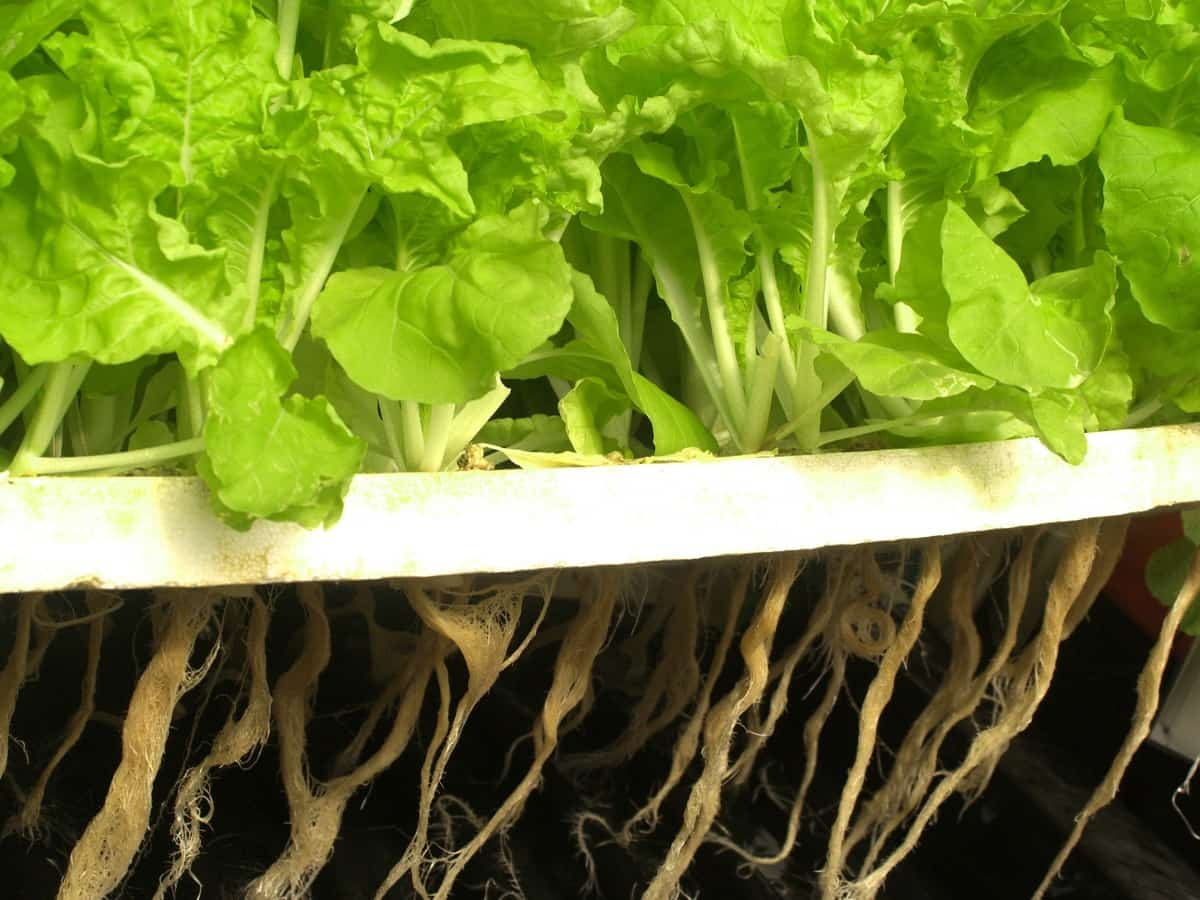
Crops suitable for hydroponics in Nigeria
Many crops can be grown using hydroponics in Nigeria. These include Tomatoes, Peppers, Cucumbers, Lettuce, and herbs. Tomatoes are the most popular crops grown using hydroponics in Nigeria. They are easy to grow and produce a high yield. Peppers are another popular crop, as they can be used in many dishes.
Cucumbers are also widely grown, as they are refreshing and have a high-water content. Lettuce is another common crop, as it is a key ingredient in salads and other dishes. Herbs such as basil and oregano are also often grown using hydroponics, adding flavor to food without taking up much space.
Hydroponic farm start-up costs Nigeria
The start-up costs can be quite high if you start a hydroponic farm in Nigeria. However, with proper planning and execution, it is possible to start a successful hydroponic farm on a budget. Below is a breakdown of the approximate cost of setting up a small-scale hydroponic farm in Nigeria:
- Construction costs: Building a greenhouse or other suitable structure for your hydroponic farm will be the most expensive upfront cost. Depending on the hydroponic structure size and type you choose, construction costs can be different.
- Equipment costs: Hydroponic farming requires specialized equipment such as grow lights, water pumps, and nutrient solution tanks. The cost of this equipment can range from several thousand to tens of thousands of Naira, depending on the scale of your operation.
- Seedling/planting costs: You will need to purchase seedlings or plants to start your farm. The cost of seedlings will vary depending on the plant type you choose to grow.
- Operational costs: There are ongoing costs associated with running a hydroponic farm, such as electricity, water, and nutrients. These costs can add up quickly, so it is important to factor them into your budget when planning your farm start-up. The average cost of a hydroponic setup in Nigeria is between N150,000 – N200,000. This includes the materials, labor, and other associated costs. The cost will change depending on the size of the setup.
Different types of hydroponic systems in Nigeria
- Deep Water Culture (DWC) is the simplest and most popular type of hydroponic system. Plants are grown in a reservoir of nutrient-rich water, and oxygen is pumped through the roots to keep them healthy. This system is easy to set up and maintain but requires more water than other methods.
- The nutrient Film Technique (NFT) is a slightly more complex system where plants are grown in a shallow channel of flowing nutrient-rich water. A pump keeps the water moving and provides oxygen to the roots. This system uses less water than Deep Water Culture, but it can be more difficult to set up and maintain.
- ZipGrow Towers are a type of vertical hydroponic system perfect for small spaces. Plants are grown in individual cells that hang from a tower. A pump sends nutrient-rich water to the roots and an air circulation system.
In case you missed it: How to Start Hydroponic Farming/Gardening from Scratch in India: A Step-By-Step Guide for Beginners
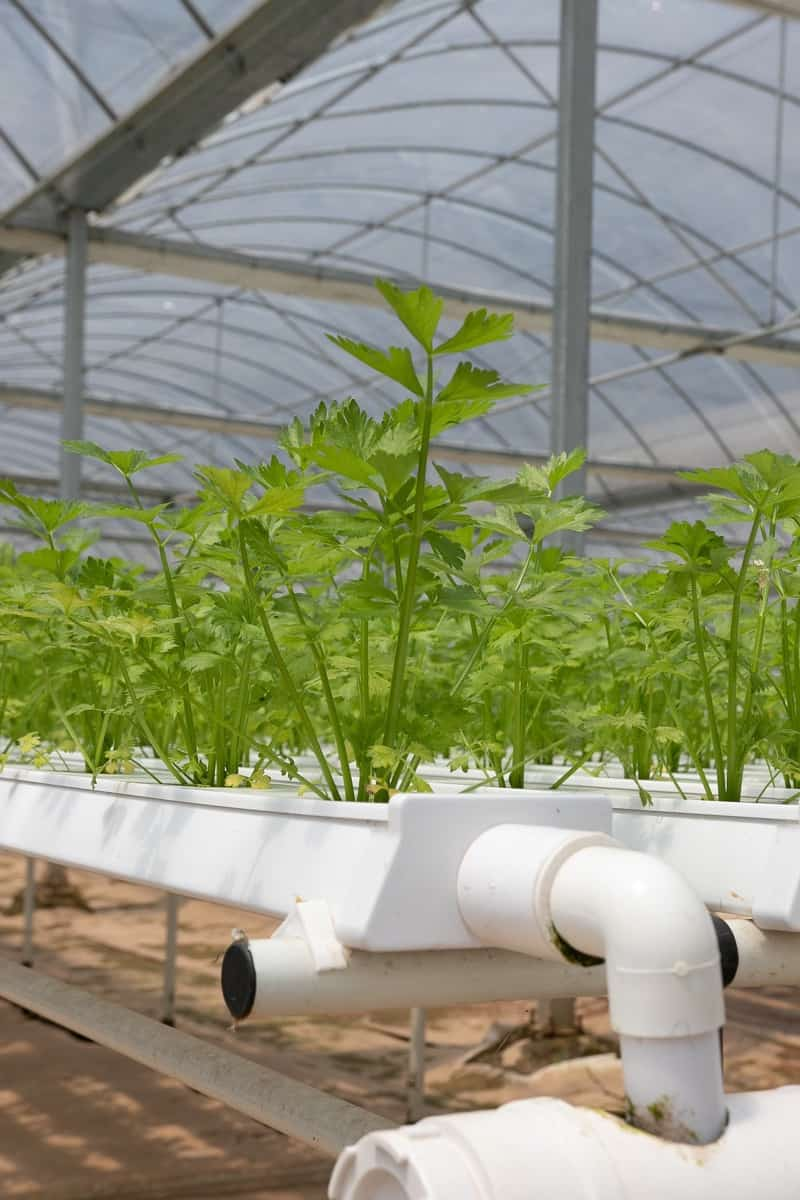
Hydroponic farming setup requirements in Nigeria
- Several requirements must be met to set up a hydroponic farm in Nigeria. Firstly, a suitable location for the farm must be found. The farm should be situated in an area with plenty of sunlight and access to water.
- Next, the necessary equipment must be sourced. This includes grow lights, pumps, and pipes. Once the equipment is obtained, it must be assembled and installed according to the instructions.
- After the setup is complete, the plants can be added to the system. The type of plants grown will depend on the specific setup requirements. Once the plants are in place, they must be monitored and cared for regularly.
- To start hydroponic farming in Nigeria, you must purchase a hydroponic system, which can be bought online or at a local store. Once you have your system, you must fill it with water and add a nutrient solution. The nutrient solution can be purchased online or at a local garden center.
- Once your system is set up, and the water and nutrients are added, you will need to plant your seeds or clones. Seeds can be germinated by soaking in water for 24 hours before planting. Clones should be planted immediately after they are cut from the parent plant.
- After your plants have been added to the system, you will need to monitor the pH level of the water and adjust as needed. The ideal pH level for hydroponic plants is between 5.5 and 6.5. You will also need to monitor the water’s temperature and ensure it stays between 20-25°C. If all goes well, your plants should grow within a few days to weeks. Remember them and adjust to ensure they get everything they need to thrive.
Hydroponic farming subsidy in Nigeria
- The Nigerian government has promoted hydroponic farming to increase food production and security. One way it has done this is by providing subsidies for farmers who adopt hydroponic farming methods.
- There is an abundance of sunlight and water, two key ingredients for successful hydroponic farming. Nigeria also has a variety of topography, from coastal plains to mountains, which provides different options for farmers to set up their operations.
- With the right planning and execution, hydroponic farming can succeed in Nigeria. There is a large potential market for fresh fruits, vegetables, herbs, and spices. These products are typically imported into the country at high costs, making them unaffordable for many Nigerians.
- Based on the National Bureau of Statistics, the government provides a subsidy of 50% for the cost of setting up a hydroponic farm. This subsidy is available to both small-scale and commercial farmers. In addition to financial assistance, the government offers training and technical support to farmers who want to set up and operate a hydroponic farm.
Choose the right hydroponics media in Nigeria
One of the most popular types of hydroponics media is coco peat. Coco peat is made from coconut husk, and it is a good option who want to avoid using soil. Coco peat is very absorbent, holding a lot of water and nutrients. It also provides good aeration for roots, which is important for healthy plant growth. Another popular type of hydroponics media is perlite. Perlite is made from volcanic glass, and it has a porous structure that allows roots to breathe while still providing ample moisture retention.
In case you missed it: 16 Key Rules for Effective Hydroponic Farm/Garden Management: From Planning to Reduce Production Cost
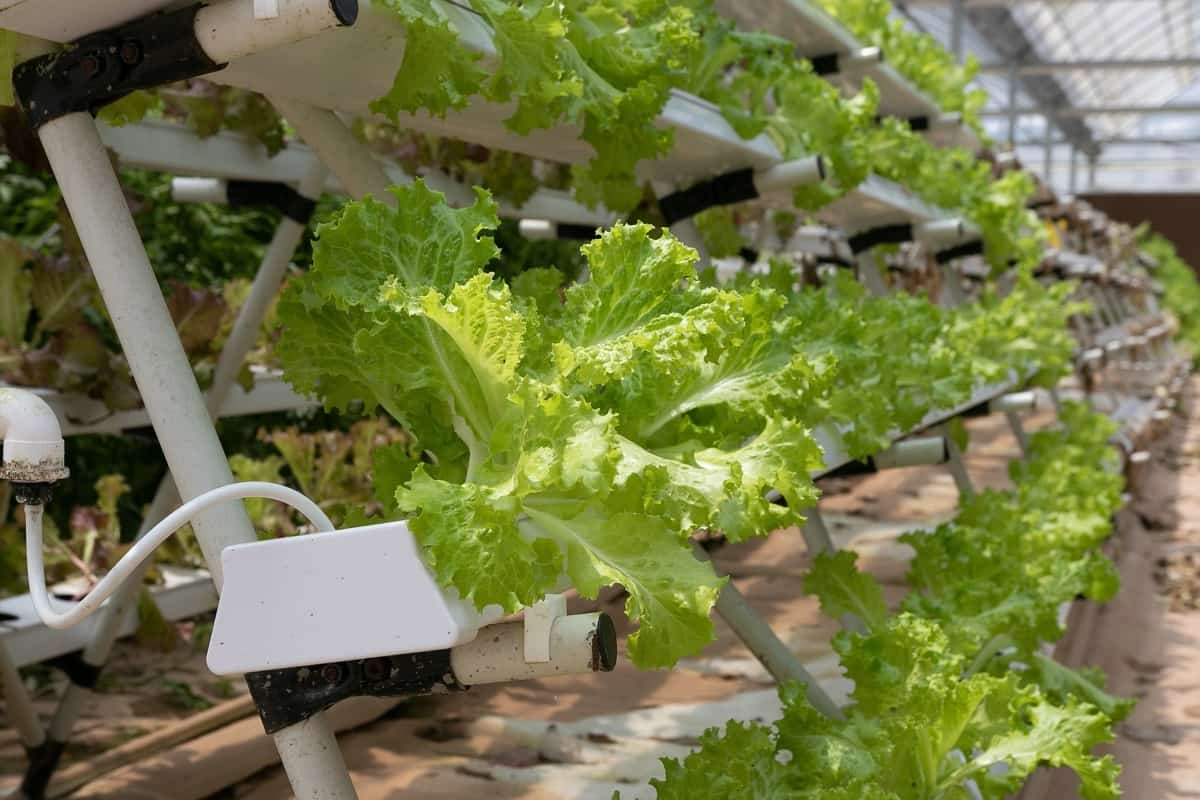
Perlite is also very lightweight, so it’s easy to work with. If you’re looking for a more natural option, consider using vermiculite. Vermiculite is made from mica and has a similar absorbent quality as coco peat. However, vermiculite doesn’t compact like coco peat to provide better aeration for roots. Vermiculite is less likely to harbor diseases and pests than other hydroponics media.
Tips for starting a hydroponic farm in Nigeria
- Research the different types of hydroponic systems and decide which one best suit your needs.
- Choose the site for your farm carefully, considering factors such as sunlight, water availability, and space.
- Obtain the necessary supplies and set up your chosen system according to the instructions.
- Plant your crops and care for them accordingly.
- Harvest your crops and enjoy your fruits or vegetables.
Hydroponic farming problems in Nigeria
One of the main problems is access to water. Water is scarce in many parts of Nigeria, and accessing it can be difficult and expensive. This makes it hard to maintain a consistent water supply for the plants. Another problem is the lack of electricity. Many rural areas in Nigeria do not have reliable electricity, making it difficult to power the equipment needed for hydroponic farming.
Lastly, getting the right supplies can be difficult. There are not many suppliers of hydroponic equipment and supplies in Nigeria, so farmers have to source them from outside the country. This can be expensive and time-consuming.
Hydroponic farming challenges in Nigeria
Several challenges must be addressed before hydroponic farming can become widely accepted and successful in Nigeria. The biggest challenge is the high cost of investment. Hydroponic systems are not cheap and require a significant amount of money to set up and maintain. This is a major barrier for small-scale farmers, who make up the majority of the agricultural sector in Nigeria.
Another challenge is access to reliable electricity. Many parts of Nigeria suffer from power outages regularly. This can make running a hydroponic system very difficult, requiring constant pumps and other equipment to function properly. There is a lack of trained personnel in Nigeria who can set up and operate hydroponic systems. This is another major obstacle that needs to be overcome if hydroponics is going to be widely adopted in the country.
In case you missed it: How to Start Hydroponic Farming in United Arab Emirates (UAE): A Step-by-Step Guide for Beginners
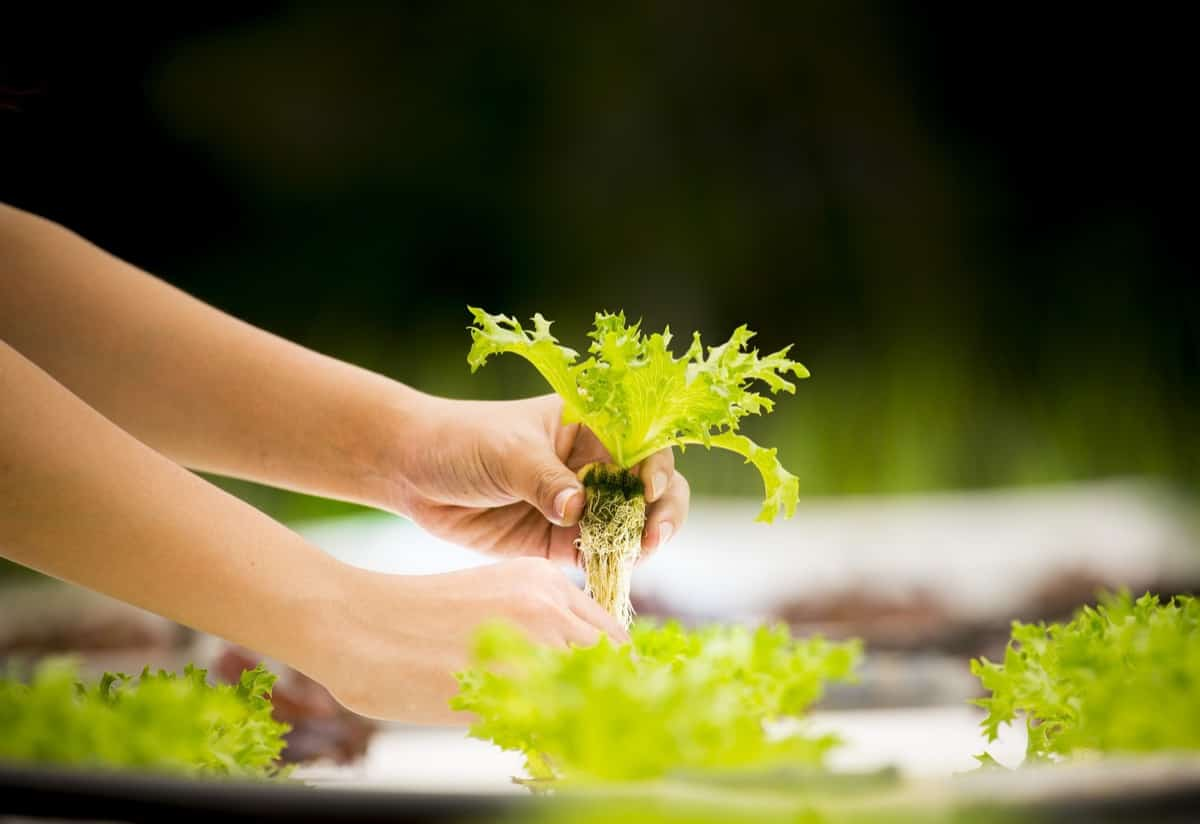
Despite these challenges, hydroponic farming offers several advantages over traditional soil-based agriculture, including decreased water usage, reduced vulnerability to pests and diseases, and increased yield potential. With proper planning and execution, hydroponic farms can be highly successful in Nigeria. With proper education and support, many of these obstacles can be overcome, and hydroponics can become a viable option for Nigerian farmers looking for an alternative way to produce crops.
Conclusion
In Nigeria, hydroponic farming is becoming increasingly popular due to the country’s limited land and water resources. Hydroponically grown fruits and vegetables are more nutritious than traditional methods. This is because plants grown in soil often struggle to access the nutrients they need, while plants grown in a controlled hydroponic environment have all the nutrients they need readily available.
- Economical Aquaculture: A Guide to Low-Budget Fish Farming
- 15 Common Planting Errors That Can Doom Your Fruit Trees
- How to Make Houseplants Bushy: Effective Tips and Ideas
- Innovative Strategies for Boosting Coconut Pollination and Yield
- Pollination Strategies for Maximum Pumpkin Yield
- The Complete Guide to Chicken Fattening: Strategies for Maximum Growth
- Natural Solutions for Tulip Problems: 100% Effective Remedies for Leaf and Bulb-Related Issues
- Revolutionizing Citrus Preservation: Towards a Healthier, Greener Future
- Natural Solutions for Peony Leaf and Flower Problems: 100% Effective Remedies
- Maximizing Profits with Avocado Contract Farming in India: A Comprehensive Guide
- Natural Solutions for Hydrangea Problems: 100% Effective Remedies for Leaf and Flowers
- The Ultimate Guide to Choosing the Perfect Foliage Friend: Bringing Life Indoors
- From Sunlight to Sustainability: 15 Ways to Use Solar Technology in Agriculture
- The Ultimate Guide to Dong Tao Chicken: Exploring from History to Raising
- The Eco-Friendly Makeover: How to Convert Your Unused Swimming Pool into a Fish Pond
- Mastering the Art of Delaware Chicken Farming: Essentials for Healthy Backyard Flocks
- 20 Best Homemade Fertilizers for Money Plant: DIY Recipes and Application Methods
- How to Craft a Comprehensive Free-Range Chicken Farming Business Plan
- Brighten Your Flock: Raising Easter Egger Chickens for Beauty and Bounty
- How to Optimize Your Poultry Egg Farm Business Plan with These Strategies
- Subsidy for Spirulina Cultivation: How Indian Government Schemes Encouraging Spirulina Farmers
- Ultimate Guide to Raising Dominique Chickens: Breeding, Feeding, Egg-Production, and Care
- Mastering the Art of Raising Jersey Giant Chickens: Care, Feeding, and More
- Ultimate Guide to Raising Legbar Chickens: Breeding, Farming Practices, Diet, Egg-Production
- How to Raise Welsummer Chickens: A Comprehensive Guide for Beginners
- How to Protect Indoor Plants in Winter: A Comprehensive Guide
- Ultimate Guide to Grow Bag Gardening: Tips, Tricks, and Planting Ideas for Urban Gardeners
- Guide to Lotus Cultivation: How to Propagate, Plant, Grow, Care, Cost, and Profit
- Agriculture Drone Subsidy Scheme: Government Kisan Subsidy, License, and How to Apply Online
- Ultimate Guide to Raising Araucana Chickens: Breed Profile, Farming Economics, Diet, and Care
- Bringing Hydroponics to Classroom: Importance, Benefits of Learning for School Students
- Ultimate Guide to Raising Polish Chickens: Breed Profile, Farming Economics, Diet, and Care
- Ultimate Guide to Raising Australorp Chickens: Profile, Farming Economics, Egg Production, Diet, and Care
- Silkie Chicken Farming: Raising Practices, Varieties, Egg Production, Diet, and Care
- Sussex Chicken Farming: Raising Practices, Varieties, Egg Production, Diet and Care
- Homemade Feed Formulations for Livestock: Discover Cost-effective Starter to Finisher Feed Recipes
I want to start Hydroponic Farming in Lagos. Let me know the requirements to partner with you.
This is a new innovation in agriculture. My advice is that Fed. Government should partner with the State and Local Government and other governmental and non governmental organizations to be organizing seminars and workshops round the country. And Schools inclusive.
I will like to start this method of farming in port Harcourt. I have read the limitations and I think I can overcome them. I have good space and enough water supply to get started. A generator set is also available for constant electricity. Please how do I get the necessary training that I will require to get started as soon as possible
I find these interesting and want to learn more about it so that I can start practicing it little by little and become master of it
Where do I get the necessary training. I’m really interested.
Where and how can one have access to necessary training needed to master hydroponic.
Thanks.
How do I obtain the necessary training, because am interested. Please help.
Good morning.
I want to start hydroponic farming in Port Harcourt, how can I partner with you to set up the farm?
I’m also interested in hydroponics training and a number of other trainings you offer.
Kindly contact please.
Thanks.